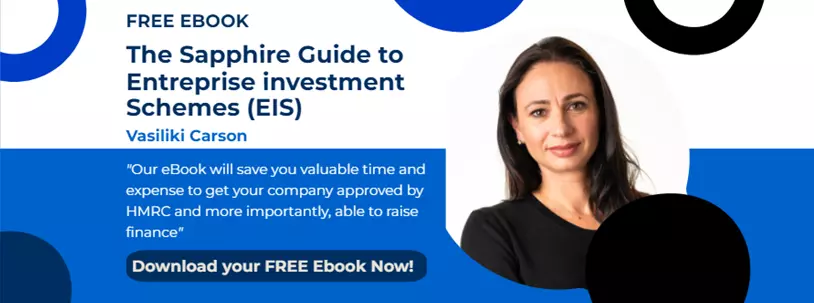
In order to ensure your company qualifies for the Enterprise Investment Scheme ("EIS") there are certain questions you need to ask firstly.
Below is a basic quiz to ascertain whether your company qualifies. If you answer no to any of the questions - then your company may not qualify for EIS. But as with everything, the devil is in detail, so check with your adviser (or us) before giving up.
1) Is your company a private unlisted company?
If you answer "no" you may not qualify for EIS.
Your company cannot be listed on a recognised stock exchange and there must be no arrangements in place for it to be become listed (there is an exception to this rule as certain exchanges are not "recognised" exchanges so quoted companies may still qualify for EIS, for example if they are on ISDX and AIM).
2) Is your company the parent company (or holding company) i.e. not a subsidiary of another company?
If you answer "no" you may not qualify for EIS.
Throughout the three year period (being the period beginning on the date the EIS qualifying shares are issued and ending three years after that date or, if later, the date the company commences trading) the company must not be a subsidiary of, or be controlled by, another company, and there must not be arrangements in place which could result in this requirement failing to be met. The company must either exist to carry on a qualifying trade (see excluded trades below in point 9) or else be the parent company of a group whose activities do not consist substantially in the carrying on of non-qualifying activities – broadly, either non-trading activities, or activities which are listed as “excluded” (qualifying activities are defined below in point 9).
3) Does your company carry on the trade or a qualifying 90% subsidiary carry on the trade?
If you answer "no" you may not qualify for EIS.
The qualifying trade for which the EIS monies are to be employed, must be carried on by the issuing company or a qualifying 90% subsidiary.
4) Is your company commercial with the desire to make profit?
If you answer "no" you may not qualify for EIS.
The qualifying business activity for which the money is raised by the issue of shares must be a trade conducted on a commercial basis and with a view to the realisation of profit.
5) Does your company have a permanent establishment in the UK?
If you answer "no" you may not qualify for EIS.
Although it is possible for qualifying activities to be carried on anywhere in the world, the company that issues the shares must have a “permanent establishment” in the UK (please note that this can be a branch rather than a subsidiary as explained in our blog article here).
6) Is your company's gross assets less that £15 million?
If you answer "no" you may not qualify for EIS.
For EIS purposes, the value of the gross assets of the company and any subsidiaries must not exceed £15 million immediately before the issue of shares and £16 million immediately afterwards.
7) Do you seek to raise less than £5 million per year?
if you answer "no" you may not qualify for EIS.
Subject to certain exceptions, the maximum EIS fundraising per company is restricted to £5 million per year and a lifetime limit of £12 million.
8) Do you have less than 250 employees?
If you answer "no" you may not qualify for EIS.
The maximum number of full-time employees (or full-time equivalent) in the company at the time of Investment is restricted to fewer than 250.
9) Is your company a qualifying trade?
If you answer "no" you may not qualify for EIS.
Most types of trades are qualifying trades for EIS purposes but trades which consist substantially in the following are excluded (i.e. not qualifying and therefore not allowed for EIS purposes):
- dealing in land, commodities or futures, or in shares, securities or other financial instruments;
- dealing in goods otherwise than in the course of an ordinary trade of wholesale or retail distribution, or acting as a wholesaler or retailer of goods of a kind which are collected or held as investments if stock is not actively sold;
- banking, insurance, money lending, debt factoring;
- hire purchase financing or other financial activities;
- leasing, except certain lettings of ships, or receiving royalties or license fees (subject to certain exceptions, most particularly in relation to self-generated intellectual property);
- providing legal or accountancy services;
- farming and market gardening;
- forestry and timber production;
- property development;
- shipbuilding;
- producing coal and/or steel;
- operating or managing hotels or similar establishments;
- operating or managing nursing homes and residential care homes;
- generation or export of electricity or power;
- production of gas or fuel; and
- providing services to a trade consisting of any of the above carried on by a “connected person.”
10) Is your trade less than seven years old?
If you answer "no" you may not qualify for EIS.
The trade of the company must generally be less than seven years old at the time of investment. The company can be older than seven years but the trade of the company must be less than seven (but note that for a R&D intensive company it can be up to ten years - contact us for more details).
11) Is your company a going concern (i.e. in healthy financial standing)?
If you answer "no" you may not qualify for EIS.
Companies “in financial difficulty” cannot receive EIS investment. In practice, HMRC accept that a company will not be treated as “in difficulty” within three years of its formation or if it is able to raise funds from existing shareholders or the market.
12) Will the EIS shares that you intending on issuing be ordinary shares with no preferential rights?
If you answer "no" you may not qualify for EIS.
Shares only qualify for EIS Relief if they are ordinary shares which do not, at any time during the Three Year EIS Period, carry any present or future preferential right to dividends (other than to certain fixed rate non-cumulative dividends) or to a company’s assets on its winding up, or any present or future right to be redeemed.
13) Will the EIS monies being raised be used for working capital purposes?
If you answer "no" you may not qualify for EIS.
The EIS monies raised must be used for working capital with the main purpose to "promote growth and development of the company" and not be used, for example, to acquire other businesses or purchase shares in another company.
14) Will the EIS monies being raised be spent within a 24 month time period?
If you answer "no" you may not qualify for EIS.
The EIS monies raised must be used withing 24 months of the share issue date.
15) The company has not already raised EIS monies that would take it over the EIS limit?
If you answer "no" you may not qualify for EIS.
If the company has received any investment from a Venture Capital Trust (VCT), SEIS, CVS or issued any shares in respect of which it has submitted an SEIS or EIS compliance statement then you need to check that the company is not already over the limits as noted in point 7 above (and the limit for SEIS is a total of £150,000).
We hope you find the above quiz useful. As always the devil is in the detail so please contact us if you need any clarification. All our contact details are on our team web page.
Sapphire Capital Partners LLP is authorised and regulated by the Financial Conduct Authority to conduct investment business.

